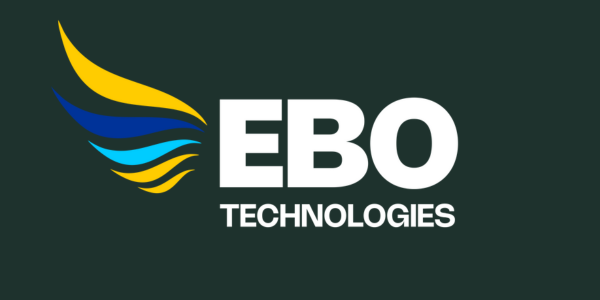Become a Computer Hacking Forensic Investigator
- Highly interactive CHFI Certification Training provided by industry leaders
- The latest CHFI Certification Course helps you master digital forensics and cyber investigation skills
- Our CHFI Course highlights the promise of a 98% Pass Rate
- CHFI Course benefits with career transformations across the globe

Program Highlights
The EC-Council’s Certified Ethical Hacker (CEH v13) training program focuses on understanding and countering cyber threats, vulnerabilities, and attack vectors in modern IT environments. This version emphasizes the use of AI techniques to enhance cybersecurity defenses and help Ethical Hackers identify threats more efficiently.
The new CEH v13 modules are aligned with 45+ cybersecurity job roles, ensuring that participants gain the expertise required for diverse positions in the cybersecurity field.
- 30-Hour LIVE Instructor-led Training
- Highly Interactive and Dynamic Sessions
- Career Guidance and Mentorship
- Training Certificate
- 98% Exam Pass Rate
- Extended Post-Training Support
- Learn with Real-World Scenarios
- Learn from Industry Experts
- Access to Recorded Sessions
CHFI (v11) Certification Training
-
About Course
-
Learning Outcomes
-
Target Audience
-
Pre-requisites
-
Course Objectives
-
Exam Details
Computer Hacking Forensic Investigator (C|HFI) certification validates the expertise of security professionals in comprehensive computer forensics, including reporting incidents of cyber attacks and hacking attempts in the courts of law. C|HFI certification provides an extensive understanding of diverse cyber forensic techniques, ultra-modern forensic tools, evidence collection, and other critical elements required to perform thorough forensic investigations of hacking incidents, all with practical, hands-on experience.
This training is meticulously designed to expertly train the professionals intending to advance their careers as Forensic Investigators and execute their security roles and responsibilities with greater expertise. It offers practical insights into diverse, robust methodologies for addressing digital forensics concerns in the organization, constituting core fundamentals of security incidents, including infrastructure analysis and tools and techniques to identify and capture legal evidence against hackers and intruders.
Module 1: Computer Forensics in Today’s World
- Fundamentals of Computer Forensics
- Cybercrimes and their Investigation Procedures
- Digital Evidence and eDiscovery
- Forensic Readiness
- Role of Various Processes and Technologies in Computer Forensics
- Roles and Responsibilities of a Forensic Investigator
- Challenges Faced in Investigating Cybercrimes
- Standards and Best Practices Related to Computer Forensics
- Laws and Legal Compliance in Computer Forensics
Module 2: Computer Forensic Investigation Process
- Forensic Investigation Process and its Importance
- First Response
- Pre-Investigation Phase
- Investigation Phase
- Post-Investigation Phase
Labs:Create a Hard Disk Image File for Forensics Investigation and Recover the Data
Module 3: Understanding Hard Disks and File Systems
- Disk Drives and their Characteristics
- Logical Structure of a Disk
- Booting Process of Windows, Linux, and mac Operating Systems
- File Systems of Windows, Linux, and mac Operating Systems
- File System Analysis
- Storage Systems
- Encoding Standards and Hex Editors
- Analyze Popular File Formats
Labs:
- Analyze File Systems of Linux and Windows Evidence Images and Recover the Deleted Files
- Analyze File Formats
Module 4: Data Acquisition and Duplication
- Data Acquisition
- eDiscovery
- Data Acquisition Methodology
- Preparing an Image File for Examination
Labs:
- Create a Forensic Image for Examination and Convert it into Various Supportive Formats for Data Acquisition
Module 5: Defeating Anti-Forensics Techniques
- Anti-Forensics Techniques
- Data Deletion and Recycle Bin Forensics
- File Carving Techniques and Ways to Recover Evidence from Deleted Partitions
- Password Cracking/Bypassing Techniques
- Steganography, Hidden Data in File System Structures, Trail Obfuscation, and File Extension Mismatch
- Techniques of Artifact Wiping, Overwritten Data/Metadata Detection, and Encryption
- Program Packers and Footprint Minimizing Techniques
Labs:
- Perform Solid-State Drive (SSD) File Carving on Windows and Linux File Systems
- Recover Lost/Deleted Partitions and their Contents
- Crack Passwords of Various Applications
- Detects Hidden Data Streams and Unpacks Program Packers
Module 6: Windows Forensics
- Windows Forensics
- Collect Volatile Information
- Collect Non-volatile Information
- Windows Memory Analysis
- Windows Registry Analysis
- Electron Application Analysis
- Web Browser Forensics
- Examine Windows Files and Metadata
- ShellBags, LNK Files, and Jump Lists
- Text-based Logs and Windows Event Logs
Labs:
- Acquire and Investigate RAM and Windows Registry Contents
- Examine Forensic Artifacts from Web Browsers
- Identify and Extract Forensic Evidence from Computers
Module 7: Linux and Mac Forensics
- Collect Volatile Information in Linux
- Collect Non-Volatile Information in Linux
- Linux Memory Forensics
- Mac Forensics
- Collect Volatile Information in Mac
- Collect Non-Volatile Information in Mac
- Mac Memory Forensics and Mac Forensics Tools
Labs:
- Perform Volatile and Non-volatile Data Acquisition on Linux and Mac Computers
- Perform Memory Forensics on a Linux Machine
Module 8: Network Forensics
- Network Forensics
- Event Correlation
- Indicators of Compromise (IoCs) from Network Logs
- Investigate Network Traffic
- Incident Detection and Examination
- Wireless Network Forensics
- Detect and Investigate Wireless Network Attacks
Labs:
- Identify and Investigate Network Attacks
- Analyze Network Traffic for Artifacts
Module 9: Malware Forensics
- Malware
- Malware Forensics
- Static Malware Analysis
- Analyze Suspicious Documents
- System Behavior Analysis
- Network Behavior Analysis
- Ransomware Analysis
Labs:
- Perform Static Malware Analysis
- Analyze a Suspicious PDF File and Microsoft Office Document
- Emotet Malware Analysis
Module 10: Investigating Web Attacks
- Web Application Forensics
- Internet Information Services (IIS) Logs
- Apache Web Server Logs
- Detect and Investigate Various Attacks on Web Applications
Labs:
- Identify and Investigate Web Application Attacks
Module 11: Dark Web Forensics
- Dark Web and Dark Web Forensics
- Identify the Traces of Tor Browser during Investigation
- Tor Browser Forensics
Labs:
- Detect Tor Browser Activity and Examine RAM Dumps to Discover Tor Browser Artifacts
Module 12: Cloud Forensics
- Cloud Computing
- Cloud Forensics
- Amazon Web Services (AWS) Fundamentals
- AWS Forensics
- Microsoft Azure Fundamentals
- Microsoft Azure Forensics
- Google Cloud Fundamentals
- Google Cloud Forensics
Labs:
- Forensic Acquisition and Examination of an Amazon EC2 Instance, Azure VM, and GCP VM
Module 13: Email and Social Media Forensics
- Email Basics
- Email Crime Investigation and its Steps
- U.S. Laws Against Email Crime
- Social Media Forensics
Labs:
- Investigate a Suspicious Email to Extract Forensic Evidence
Module 14: Mobile Forensics
- Mobile Device Forensics
- Android and iOS Architecture and Boot Process
- Mobile Forensics Process
- Investigate Cellular Network Data
- File System Acquisition
- Phone Locks, Rooting, and Jailbreaking of Mobile Devices
- Logical Acquisition on Mobile Devices
- Physical Acquisition of Mobile Devices
- Android and iOS Forensic Analysis
Labs:
- Examine an Android Image File and Carve Deleted Files
Module 15: IoT Forensics
- IoT Concepts
- IoT Devices Forensics
This course is ideal for:
- Incident Responder
- Cybercrime Investigator
- Cyber Defense Forensic Analyst
- Forensic Analyst
- Malware Analyst
- Security Consultant
- Chief Security Officer
- Information Technology Auditor
- Basic understanding of IT, cybersecurity, computer forensics, and incident response.
- It is recommended to have CEH training and certification.
- Understand the fundamentals of digital forensics and cybercrime investigation techniques.
- Master anti-forensics techniques and methods to counteract them.
- Develop malware analysis and network forensics skills to detect and investigate cyber threats.
- Gain expertise in mobile forensics for comprehensive investigations.
- Perform forensic investigations on Windows, Linux, and macOS environments, including memory analysis and file system examination.
- Develop expertise in investigating dark web activities and social media forensics.
- Learn how to analyze web application attacks and investigate email crimes.
- Learn the fundamentals of cloud and IoT forensics.
- Prepare for real-world forensic challenges through hands-on labs and practical scenarios.
| Name of the Certification | C|HFI |
| Exam Code | 312-49 |
| Exam Format | Multiple Choice Questions |
| Exam Duration | 240 Minutes |
| No. of Questions | 150 Questions |
| Passing Score | 60-85% |

Still Confused About Course?
Talk to Our Experts!
